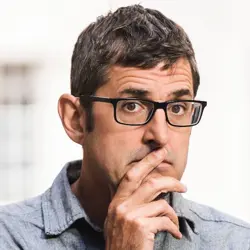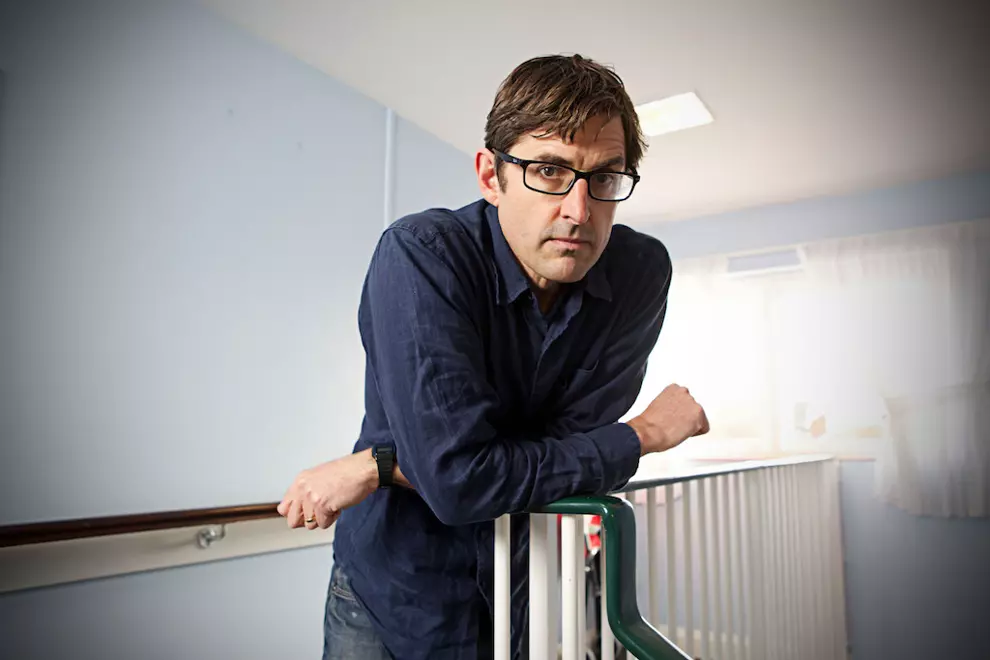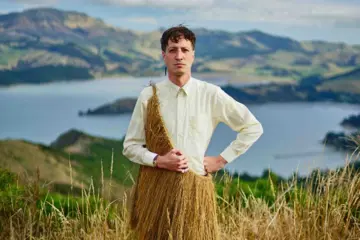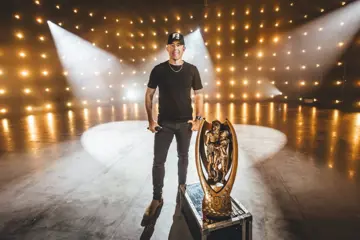 Louis Theroux
Louis TherouxIt makes sense that Louis Theroux was curious from a young age. The UK journalist and documentary filmmaker has made a name for himself over the last two decades by gently but insistently shining a light on marginalised, misunderstood subjects and individuals, from maximum-security prisons to Michael Jackson. And as he recalls, his interest in such topics was active when he was a boy.
"I was aware of being fascinated as a young child by homeless people, mentally ill people, talking to themselves," says Theroux when asked about the first inkling of his affinity for the different. "I know it's a slightly odd image. But my parents used to say I would embarrass them by saying in a loud voice 'Why is the man shouting when there's no one there?' My dad used to do an impersonation of me where I'd always start my sentences with 'But whyyy?' It became a family joke, and it might be a stretch to relate that to the job I'm doing, but I've always been asking 'But why?'"
Theroux's profile rose in the 2000s with a range of documentaries he made for the BBC that would embed him with a variety of subcultures, from the porn industry to neo-Nazis. His hour-long interview with UK entertainer Jimmy Savile, who would be posthumously accused of serial sex offences, was voted one of the best documentaries of all time. In recent years, however, Theroux's focus has shifted somewhat - sure, in the past few years he has spent time with people who collect extremely exotic pets and revisited the porn stars he profiled a decade earlier, but he has also investigated mental illness, the lives of transgender children and treatments for autism and dementia.
Two of his most recent specials, Drinking to Oblivion and A Different Brain, are airing on ABC in July, and their sensitive but forthright approach to the subjects of extreme alcoholism and acquired brain injury illustrate the direction Theroux's career has taken as of late. For Theroux, however, the shift doesn't seem that radical.
Don't miss a beat with our FREE daily newsletter
"For years I've made shows about what were deemed weird people - religious stuff, sexual stuff, slightly racist people… well, not slightly - and more recently I've been doing shows more in the area of disability, so [Drinking to Oblivion] was approaching alcohol from that sort of angle," he says.
"These are situations that take us to the heart of what it means to be human and to be alive."
"And then you have family members faced with the dilemma of helping someone abusing alcohol to a horrific extent - it becomes a question of whether your help is any use and whether or not you have to disengage from this person. For me, the core to all these stories is something very raw, real and emotional, with very high stakes at the heart of it."
Drinking to Oblivion and A Different Brain are thematically linked by the effect the conditions in question have upon the person at the core of the story but also their loved ones. It's often heartbreaking stuff, given that alcohol abuse and brain injury can have so transformative.
"I think alcohol abuse is something like an illness, and brain injury is a physical condition with psychological effects," says Theroux.
"In both cases, there are family members and loved ones who are trying to rebuild their lives around someone who is profoundly different. In the case of Rob and Amanda in A Different Brain, Amanda has suffered a brain injury after a horse-riding accident. As Rob sees it, Amanda is a different person - she's impatient, she's snappish with their kids in a way she wasn't before - while Amanda feels like she is who she is now, and she feels patronised - people are treating her as if she's a child, so there's this question of how much you do to keep the relationship on track.
"It's the best kind of terrain for documentary making because you're taking a situation that is on one hand very extreme but on the other very relatable. It reminded me of my own kids, my own family. All marriages have their own challenges and negotiations, so my hope is when you're watching the brain injury documentary you're maybe seeing your own relationships, your own life in there."
That link between the personal and the universal is perhaps what draws so many viewers to Theroux's documentaries. "For me, the first impulse is 'That's a story we can tell, and it would be a really good story'," he says. "It comes down to people put in extraordinary circumstances - you're born into a cult, you're imprisoned for murder, you have a child with autism who is growing and developing to the point where they may be unmanageable. These are situations that take us to the heart of what it means to be human and to be alive."
A Different Brain airs 3 Jul on ABC2. Drinking to Oblivion airs 10 Jul on ABC2.
















